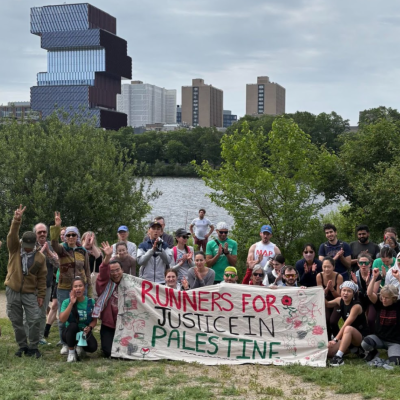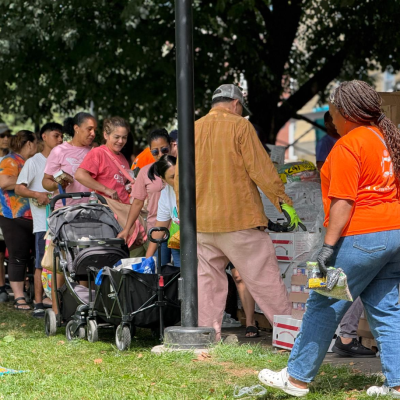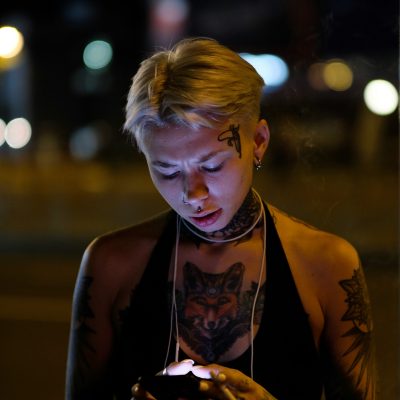Boston Arts Academy alumna Diane Guerrero’s commitment to change
“You want some matcha?”
American actress Diane Guerrero offers, casually, as if I’m her friend and not some awkward teenager waiting to ask her for consent to record. I say no, terrified to accept anything from someone so famous, and wait as she makes her drink and leads us to the living room of her Manhattan apartment. “Ask away,” she offers.
Raised in the Boston neighborhoods of JP and Roxbury, the Boston Arts Academy graduate Diane Guerrero is a Colombian-American actress and author who’s been in works such as the Netflix series “Orange is the New Black,” the telenovela “Jane the Virgin,” and her breakout onto the music scene as the voice of Isabela Madrigal in Disney’s animated movie “Encanto.”
In 2016 she released her memoir “In the Country We Love,” which details her experience of having her parents and older brother deported to Colombia when she was just 14. With the release of this memoir, Guerrero added activist to her already impressive resume.
Guerrero first got into advocacy because she wanted to raise awareness about what she had gone through and what so many other children go through when their families are separated by deportation. But she soon found that doing so was just as difficult as it was empowering. She describes herself as being “re-traumatized” early in her activism and says she later found that the media and other organizations would try to exploit her to show that they supported a good cause without really putting any change behind it.
“I wasn’t seen as just a person,” she said when describing how she felt her immigration activism became tokenized. “It was just like, ‘She’s an activist, all she cares about is immigration.’”
Eventually, Guerrero felt that the tokenization became so bad that she wanted to step back from the advocacy work and refocus her public perception to be more about her artistic talent.
That step back didn’t last very long. The experiences she had as a child of immigrants were what shaped her and she wanted to keep telling that story. She just wanted it to be on her terms.
“There are moments,” she explained, “where people will make you think that you’re talking too much … Or that you’re just always ruining the vibe by bringing up like, ‘Oh, my family was separated.’ Yes,” she said, “My family was separated, and that should not happen. And I’m going to continue talking about it because it’s continuing to happen to other people.”
After reclaiming her voice in telling her own story, Guerrero got more comfortable in her activism and started to expand and speak on other issues she cares about. Since early November, she’s been posting about the genocide in Gaza and advocating for a ceasefire and to free Palestine.
She says she cannot be an advocate for one group of people without being an advocate for all of them. In explaining her choice to be so vocal towards Palestinian liberation, she said:
“You don’t listen to all these institutions that want to keep the status quo and who are, like, always silent when our people are getting murdered when our people are being oppressed, when our people are being hurt. So yeah, it was important for me to say something. Because, you know, I want my values to be known. I want people to know who I am. All my life has been a fight to let people know who I am from the beginning.”
Starting in 2020 with the resurgence of Black Lives Matter protests, activism on social media became controversial. Some people argued that posting about certain causes was necessary, or a first step towards actual change, yet others believed that such actions contributed nothing to the actual cause or could even distract from crucial reforms.
Guerrero acknowledged the performative tones of some social media advocacy but said that such communication with the public shouldn’t be taken for granted.
”It’s all about community. It’s all about, like, helping someone be seen. And if they’re seen, then they can stand up for themselves, or they can find people who they feel safe with,” she said.
Social media activism might not be the end goal. But it can help people find their community, a community that’s so important for someone who’s relied as heavily on the kindness of friends and neighbors as Guerrero has. And she’s going to keep speaking up and posting until that safe community exists for everyone.






